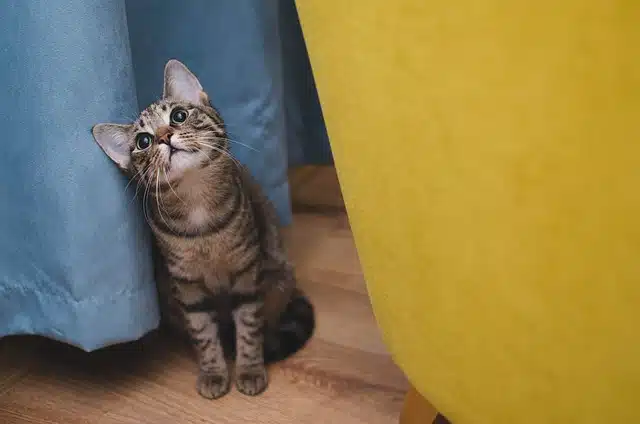Cats are one of the most popular pets in the world, and with good reason. They are loving, curious, and entertaining companions. As a responsible pet owner, you want to make sure your cat is healthy and happy. One important part of that is making sure they stay up to date with their vaccinations. But do cats really need shots? Let’s take a closer look at the question of whether cats need shots and what types of shots cats should get.
Why Do Cats Need Vaccinations?
Vaccinations are an important part of keeping your cat healthy. Vaccines help protect your cat from potentially fatal diseases and help prevent the spread of disease to other cats. Vaccinations are not only recommended for cats living in households, but for cats that go outdoors as well. If a cat is exposed to an infectious disease, the vaccine can help reduce the severity of the illness or even prevent it from happening at all.
Vaccines are also important for cats that come into contact with other cats, such as those at a boarding facility or a groomer. By vaccinating your cat, you can help protect them from getting sick and help reduce the spread of disease to other cats.
What Types of Vaccines Do Cats Need?
The most basic type of vaccine that all cats need is the FVRCP vaccine, which stands for feline rhinotracheitis, calicivirus, and panleukopenia. This vaccine helps protect cats against three serious viral infections and is typically given in a series of two or three doses, depending on your cat’s age and health.
For cats that go outdoors, a rabies vaccine is also important. This is a one-time vaccine that is typically administered at 16 weeks of age or older.
Cats that are at higher risk of infection, such as cats in a multi-cat household or cats that go outdoors, may also benefit from the Feline Leukemia Virus vaccine. This vaccine is typically given in a series of two or three doses, depending on the age and health of the cat.
Additionally, some cats may need additional vaccines depending on their lifestyle and environment, such as a vaccine for feline infectious peritonitis, a vaccine for ringworm, or a vaccine for feline immunodeficiency virus. Talk to your veterinarian to determine if your cat needs any of these additional vaccines.

When Should Cats Get Vaccinated?
It is important to vaccinate your cat at the right time so that it can receive the most benefit from the vaccines. Generally, cats should get vaccinated between 6 and 8 weeks of age. This is the age when kittens are most vulnerable to diseases, and the vaccines will provide them with the best protection. After the initial round of vaccines, cats should get boosters every one to three years, depending on your veterinarian’s recommendation.
It is also important to note that some vaccines are designed to protect cats against certain diseases, while other vaccines are more preventative in nature, and should be given to cats that are at risk of coming into contact with infected animals. Talk to your veterinarian to determine the right timing and type of vaccines for your cat.
Are There Any Risks to Vaccinating Cats?
Vaccinations are an important part of keeping cats healthy, but it’s important to understand the risks associated with them. Vaccines are made from weakened or killed forms of viruses or bacteria. While these are generally safe, some cats may experience side effects from the vaccine.
Most common side effects of vaccinating cats include soreness, swelling, or redness at the injection site. These side effects should resolve within a few days, but if they become severe or last longer than a few days, it’s important to contact your veterinarian.
In rare cases, cats may also experience an allergic reaction to the vaccine. Symptoms of an allergic reaction include hives, facial swelling, difficulty breathing, and vomiting. If your cat experiences any of these symptoms after a vaccination, it’s important to seek medical attention right away.
It’s also important to remember that no vaccine is 100% effective. Even if your cat is vaccinated, they can still contract the disease they were vaccinated against. It’s important to continue to take preventive measures to protect your cat’s health.
The risks associated with vaccinating cats are generally minor, but it’s important to be aware of them. Talk to your veterinarian about the benefits and risks of vaccinating your cat, and make sure you understand the potential side effects.

Conclusion
Cats need vaccinations to stay healthy and safe. The most important shots that cats should get are the rabies vaccine, feline distemper vaccine, and feline leukemia vaccine. Cats should get their first set of vaccines when they are 8-10 weeks old and should get booster shots every 1-3 years. While vaccines are generally safe, there is always a risk of side effects. It is important to follow the vaccine schedule recommended by your vet to ensure your cat stays healthy and protected.
When it comes to indoor cats, it is important to know that they still need vaccinations. Vaccinations help to protect your cat from a variety of diseases and illnesses. This is especially important for indoor cats since their environment is more confined and they may not be exposed to the same kinds of germs as outdoor cats.
The exact type of vaccinations your cat needs will depend on their age and lifestyle. Kittens need a series of vaccinations to build immunity to certain diseases. Adult cats also need to stay up to date with their vaccinations to maintain their immunity. Your veterinarian can help you determine the best vaccination schedule for your cat.
Indoor cats generally require fewer vaccinations than outdoor cats, as they are not exposed to the same risks. Therefore, a good rule of thumb is to only vaccinate your indoor cat when recommended by your veterinarian. Core vaccines, such as those for rabies, feline distemper, and feline leukemia, are typically recommended for all cats, regardless of their lifestyle. Non-core vaccines, such as for feline infectious peritonitis, may also be recommended depending on your cat’s age and health.
It is important to keep your indoor cat’s vaccinations up to date, as it can help protect them from infectious diseases and other potential health problems. Generally, kittens will require several rounds of shots over the course of the first year of life. After that, most cats will need booster shots every 1-3 years. Your veterinarian will be able to provide you with a specific vaccination schedule for your cat.
The core vaccines that all cats should receive are the feline distemper, feline infectious peritonitis, and feline rhinotracheitis. These vaccines should be administered when your cat is first brought home, at 8-10 weeks old, and then repeated yearly. If you adopt an adult cat, the first vaccines should be given right away and then repeated every 3 years.
Your veterinarian may also recommend additional vaccines that are specific to your area. These may include vaccines for feline leukemia virus, feline panleukopenia, and feline calicivirus. Other vaccines may also be recommended depending on your cat’s lifestyle. For instance, if your cat spends a lot of time outdoors, your vet may suggest a rabies vaccine.
It is a common misconception that cats who never go outside do not need vaccinations. Although cats who remain indoors may be less likely to contract certain infectious diseases, they can still be exposed to diseases through contact with other cats, humans, and even fleas.
Vaccines protect cats against a variety of illnesses, including feline leukemia, rabies, and feline viral rhinotracheitis.
In most areas, it is the law to vaccinate cats against rabies. Unless a cat has been tested for current rabies infection and is up-to-date on vaccinations, rabies vaccinations are necessary.
Vaccinating cats against other diseases is not only important to protect the cat, but also to protect other cats and humans in the household and community. Vaccines can help reduce the spread of contagious diseases, and cats who are not vaccinated are at risk of becoming carriers and passing the disease on to other cats.
No, it is not OK to not vaccinate your cat. Vaccines are an essential part of keeping your cat safe and healthy. Vaccines protect cats from a variety of potentially deadly diseases that can cause severe discomfort, illness, and even death. Not only do vaccines protect your cat, but they also protect other cats and animals from diseases that your cat could spread.
Vaccines also help to reduce the spread of disease in local wildlife populations. Without proper vaccination, cats can become infected with diseases that can be difficult to treat and even fatal. Vaccines are relatively inexpensive and easy to administer, and are an essential part of responsible pet ownership.














